“Classical literature” (c.1200 BC—400 AD) refers to literary works composed by the Greek and Roman writers from the first millenium BC up to the collapse of the Roman Empire. That is, everything from Homer’s Illiad and Odyssey (Greek, c.750 BC) up to and including Augustine’s The Confessions (completed in Latin, the language of the Romans, in 400 AD).
With the exception of the Bible, the language, stories, and poetry of the Greek and Roman civilizations have most influenced the English language and its literature. Without the Greek and Roman authors, we would not now be using the Roman alphabet to go on an odyssey of reading English literature.
What are Representative Works of Classical Literature?
Around 1200 BC, the powerful civilizations of the ancient world collapsed, ending the Bronze Age. The dominance of the languages and literatures represented by the texts of the Ancient Literary Period subsided and was replaced by the dominance of the languages and literatures of the Greek and Roman civilizations of the Western world’s early Iron Age.
Homer’s Odyssey (archaic Greek)
Over the five hundred years following the collapse of the Bronze Age civilations c.1200 BC, an archaic Greek language and literature developed, culminating in the oral epics Illiad and Odyssey, composed by the legendary poet Homer around 750 BC.
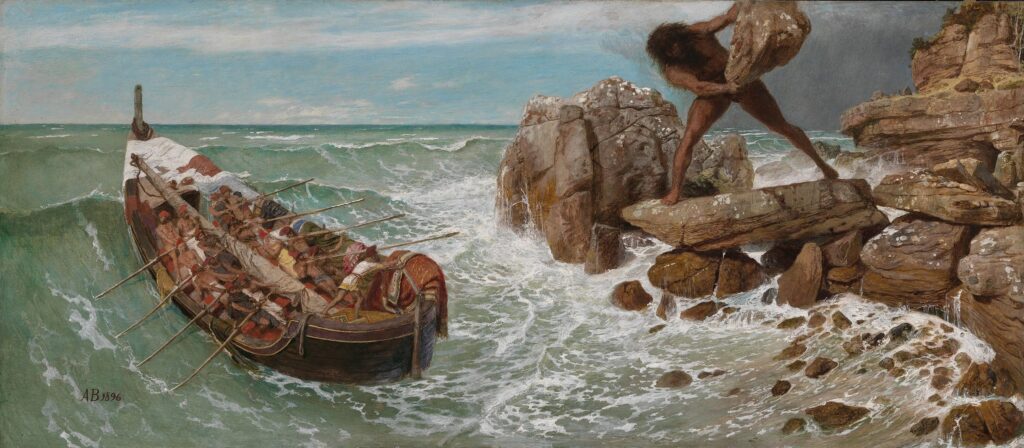
The Illiad and the Odyssey are the first great works of Western literature. They are examples of epic poetry, that is, book-length poems that tell tales of heroes and gods in conflict around the Trojan War (which may have taken place c.1100 BC).
While it is important to read the Illiad, misterdoctorcoachguy suggests sticking with the Odyssey if one is eager to progress to reading literature written in English and only wishes to make time for one of Homer’s epics.
The Odyssey relates the tale of Odysseus, king of Ithaca and most strategic of the Greek leaders, who conceives of the trick of the Trojan Horse that will bring victory over the Trojans after ten grinding years beseiging their city, yet suffers misfortune after misfortune causing him to take another ten years to return home to his family.
Odysseus’ adventures escaping the Lotos Eaters, fighting the Cyclops, and seducing the witch Circe form the basis of later picaresque novels in English, such as Swift’s Gulliver’s Travels, Twain’s Huckleberry Finn, and Thackeray’s Vanity Fair, with their adventuring heroes Gulliver, Huck, and Becky.
Archilochus’ lyrics (Greek)
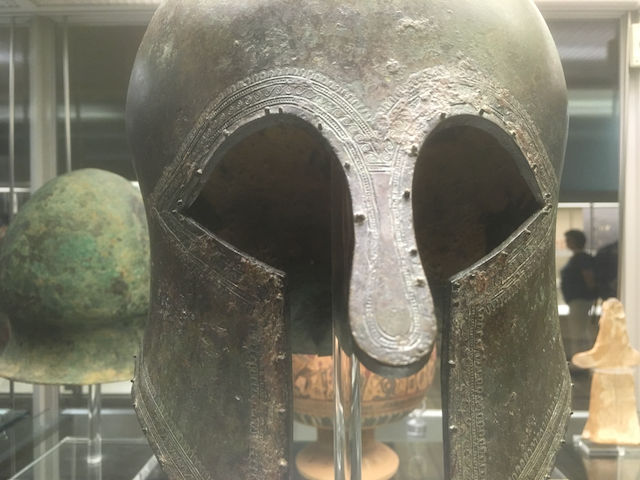
The first known writer of lyric poetry was a rough-and-tumble soldier. Archilochus (also spelled Archilochos) wrote his first-person point-of-view poems around 650 BC with the heart and mouth of a professional warrior. Davenport’s translation captures these earliest songs about drinking, fighting, and fornicating in modern, direct language. (The graphic nature of some of this poetry makes it unsuitable for younger readers.)
Sappho (Greek)
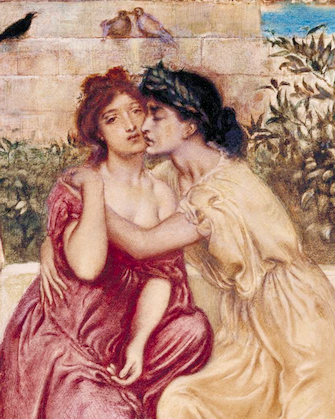
If Archilochus is the father of lyric poetry, Sappho is its mother. Writing only a couple of generations after Archilochus, c.600 BC, Sappho penned lyric poems about love, generally directed toward other women, that feature more delicate metaphors and similes than the soldier, but with emotions just as vivid for contemporary readers.
As is the case with Archilochus, most of Sappho’s poems exist in fragments, discovered on bits of broken pottery or in quotations by writers in later centuries, before the bulk of her poetry was lost when Julius Caesar’s forces accidentally burned the Library at Alexandria in 48 BC.
Sophocles’ Oedipus the King (Greek)
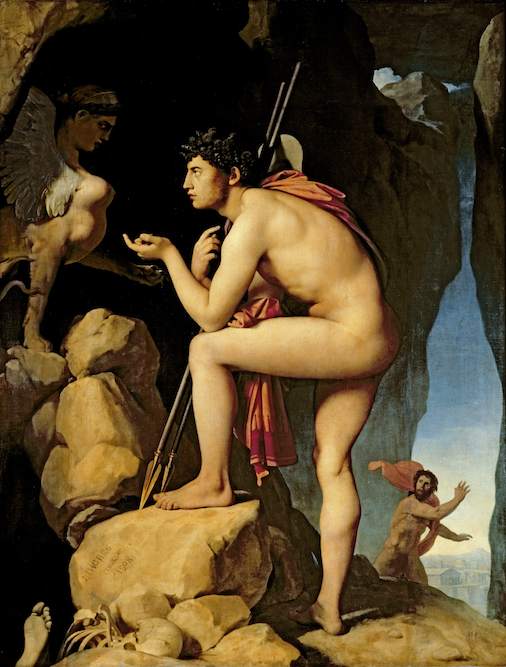
Drama as we know it in Western literature, with actors on a stage imitating other figures as they perform before an audience, first flourished with the early Greek dramatists of the fifth century BC: Aeschylus, Aristophanes, and Sophocles. The essential play to read is Sophocles’ dramatization of the downfall of Oedipus, the legendary ancient king of Thebes who rose to power in the 1200s BC, before the Trojan War.
Since Oedipus was a well-known figure among the classical era Greeks, referred to as far back as Homer’s Odyssey, Sophocles’ audience watching Oedipus the King would have been quite familiar with the story of the brilliant hero who defeated the monstrous Sphinx by solving her riddle, yet who could not avoid fulfilling the prophecy that he would unknowingly kill his own father and marry his own birth-mother. (Oedipus was adopted in infancy by the king and queen of a neighboring kingdom and did not know his biological parents.) Sophocles’ brilliant use of dramatic irony allows the audience to feel every bitter pang of the horrific revelations to Oedipus, the unluckiest man who ever lived.
Aesop’s fables (Greek)
Aesop may have been a slave living on Samos in the early 500s BC, but none of his original writings survive. Instead, others, such as Aristotle, referred to Aesop and related his tales in their own works, which have come down to us in a collection we call Aesop’s Fables.
The fable, a peculiar type of story usually featuring a talking animal and demonstrating a moral point or satirizing some aspect of the human condition, has thrived since Aesop’s time, and his concise stories, such as “The Tortoise and the Hare,” “The Boy who Cried Wolf,” and “The Fox and the Grapes,” should be familiar to any contemporary reader.
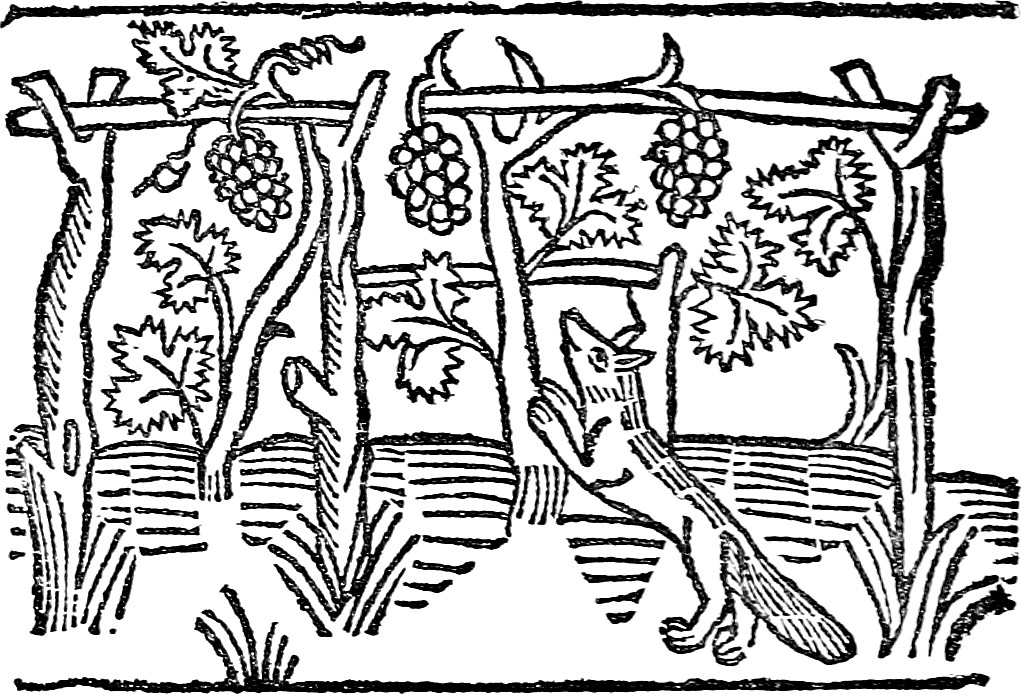
Ovid’s Metamorphoses (Latin)

Ovid lived at the dawn of the Roman Empire, and his raucous, rebellious stories disturbed the first emperor, Augustus (who was keen to stabilize Roman society after the civil war), so much that he had the poet banished.
Metamorphoses is a collection of narrative poems whose stories center on transformations. Characters in each story change into another form, such as Daphne turning into a tree or Pygmalion’s statue turning into a real woman.
Reading Metamorphoses is a fine way to learn the stories of many pagan gods and heroes, stories which will form the subject of much art and literature in the western world for thousands of years to come.
Virgil’s The Aeneid (Latin)
Unlike Ovid, Virgil sought to please Caesar Augustus by writing propaganda for the new emperor. But what a fine piece of propaganda it is!
Virgil created an epic narrative poem whose first half imitates the wandering voyage of Homer’s Odyssey and whose second half imitates the passionate warfare of Homer’s Illiad, but whose purpose overall is to tell a tale of the founding of the Roman people.
In the first half, Aeneas, a Trojan prince, escapes from the city after the Greeks have overrun it. Aeneas voyages across the Mediterranean on an Odyssey of his own, culminating in an affair with Dido, Queen of Carthage, and a journey into the underworld to learn what he must do (just as Odysseus went to Hades and back).
The second half finds Aeneas and his troops fighting to defeat Turnus, rival for the hand of Lavinia, daughter of King Latinus of Latium. Aeneas and his allies must defeat Turnus and his champion, Princess Camilla, a sort of Amazonian warrior.
The New Testament (Koine Greek)
The parables and enigmatic teachings of Jesus Christ were first recorded during the first century in a type of Greek called Koine. The parables of the Gospels and the teachings of The Sermon on the Mount, especially, have had an incalculable influence on Western and world culture, and should be read by any educated person if not as a matter of faith than as a matter of literary study.
Koine was a lingua franca, a second language known to most people of the Middle East, including Jesus and his followers, in order to conduct trade and communicate across the various languages of the time.
The King James Version of the Bible, which translates the Hebrew and Koine Greek of the Old Testament and the New Testament, respectively, was commissioned by King James in 1611. It features, therefore, the Early Modern English of Shakespeare’s day, and it is unrivaled in grace and beauty.
Augustine’s Confessions (Latin)
Augustine wrote the first recognizable autobiography in western literary history. His Confessions, completed in the year 400, at the fall of the Roman Empire, tells the story of how the young Berber North African man found Christianity after his dissolute student years, considers the meaning of his struggles with his new Christian morality, and gives the Western world views on how to live that have shaped our understanding down through today.
Grant me chastity and self-control, but please not yet.
Augustine, The Confessions (translation by Maria Boulding)
Representative Works of Classical Literature
Homer’s Odyssey, Archilochus’ lyrics, Sappho’s lyrics, Sophocles’ Oedipus the King, Aesop’s fables, Ovid’s Metamorphoses, Virgil’s The Aeneid, The New Testament, Augustine’s Confessions

